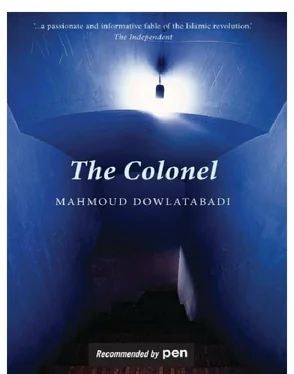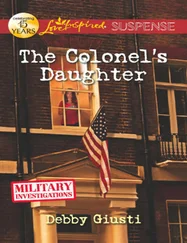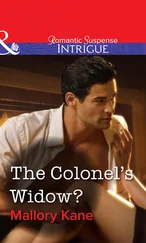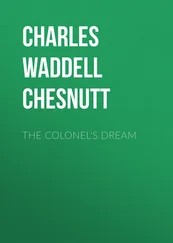“We did indeed, Sir.”
The Colonel gets up and leans on the mantelpiece, dabbing the blood off his neck with his handkerchief. His Excellency stands up too, picks his hat up off the table and lays it over the hand holding his walking stick. He straightens his grey bow tie under his Adam’s apple, gives a little cough and, fixes his gaze sternly on The Colonel through his pebble glasses:
“If I were you, Colonel, I’d take better care of your head.”
The Colonel turns round to look at him: “Will that be all?”
His Excellency simply smiles and looks at The Colonel once more. To see him properly he has to look up a little. As he does so, the greasy hair on the back of his head and round his ears catches the light and shimmers like a cock’s tail feathers. For a while he says nothing, and just stands there, wondering what to do next, as though finding the presence of The Colonel distasteful. Then he sits down, puts his hat and stick down and, with his elbows on the table, rests his chin on his hands and studies The Colonel through his spectacles. The Colonel’s final impertinent question was a calculated affront, and he cannot let it stand and leave the room humiliated. But The Colonel stands, solid as a rock, by the mantelpiece, beneath his photograph, wiping the blood off his neck with his handkerchief every now and then and saying nothing. Knowing His Excellency’s character, he is deliberately making him sweat.
This time His Excellency is more threatening:
“I stayed on, to make sure we did not lose the oil in the north. 58But you and your like… your pride is too much. A special court has been set up to pronounce on all the crimes of the last century, from Amir Kabir right down to you, Colonel Mohammad-Taqi Khan, and my own cousin, Mossadeq. I hope that you will be able to maintain your usual sang-froid.”
He stood up and went on: “I hope you’ve got the stamina for it, Colonel. The charges are serious indeed. A judicial review of the whole story is long overdue. Sealed files will not be opened, of course, but with a little patience… It will be local people running the court, Colonel, your own offspring, patriotic young men, all.”
His Excellency is clearly trying to provoke The Colonel, who forces himself to control his temper. His eyes glowing two chalices of blood, he glares back, his voice shaking like a battle ensign in the wind:
“Enough play acting, Your Excellency! Come out and be frank.”
His opponent has by now regained his composure. He even manages a smile, as he takes a sugar plum out of a soggy paper bag and pops it in his mouth. His tone is now winningly sarcastic:
“All in good time, Colonel, all in good time. No more of this old soldier business, now. Come on now, every old soldier knows never to leave your foxhole until you’ve dug another one first! You have dug yourself well in to your last hole this time, haven’t you, Sir? Isn’t that so?
Ah, I am indeed sorry for you, for your successes as much as for your defeats. You are too good for this vale of tears. To think, a man of your talents and your nice European education, with all that German romanticism, all that Wagner and Nietzsche… It pains me to see you brought so low. You were just too good for this country, too rarefied a flower for this stony ground. What a shame that you never took my advice. If you had, you wouldn’t be an embittered old man faced with the wickedness and wrath of the mob, Colonel. Or with the anger and vengeance of your own offspring. You really should have left, you know…”
“I couldn’t abandon my country, Sir. Logically, it should have been you who left…”
“I told you why I had to stay… But you… You’ll be totally forgotten, Colonel. Your misbegotten children, villains all of them, will devour you like wolves. And all because of your patriotism, Colonel. Would you believe it? Your own children!”
“My children will pay you back for this one day, as will yours, I swear, Your Excellency.”
“Your children are blowing another tune now, soldier. Can’t you hear the mob out on the street? Your children are busy tearing each other to pieces like wolves. Not a pretty sight! It’s frightening, isn’t it? Look where I’m pointing, I’m showing you what tomorrow will bring!”
“We were trying to find our own way in life, Sir. But I’m telling the story backwards.”
“Look out of the door. Your children are right outside at this very moment, waiting for you. It’s a big show! If you want my advice, you’ll be a bit more compliant. They will be more lenient if you are. After all, how many times can they cut off a man’s head?”
His Excellency sits in silence under The Colonel’s unblinking stare for a while, then, without meeting The Colonel’s gaze, gets up and gathers up his hat and stick: “So, you’ve decided to tough it out, have you? I admire the stand you are taking, I really do — I’m honour bound to say that to you. But on the other hand, your stubbornness is exasperating. For the same reason, I would like to break those fine upstanding legs of yours.”
“Have you anything further to say?”
No, everything had already been said. The old man was shaking now and his eyes were clouding over and he had a splitting headache. Was madness descending on him once more? It all seemed so unreal, and yet it was all too real. Alone with the monotonous, unrelenting din of the rain, he felt the evening filling the room with a suffocating darkness. He saw shadowy hands strapping a horse’s girth round The Colonel’s shoulders and leading him out through the rain into the street and on to the square. The Colonel held himself up straight and strode purposefully along. He no longer made any attempt to staunch the blood running from his throat over his shoulders and on to his chest.

The room needed light. The old man stretched out a shaky hand to switch it on, and there was light. In the glow cast by the lamp, he saw that The Colonel’s picture was missing from its frame and that the photographs of his children had fallen on the floor, where they had been crumpled and kicked about. Rain was hammering on the old tin roof. The flame in the paraffin stove was guttering. It seemed that it was all over. On the wall his sword and his setar were still hanging there, covered in a thick film of dust. He was seized by a wish to take down his setar , dust it off and strike up a tune, but… No, he had to get on with it now. There were things on the table waiting to be dealt with: the box of sugar plums, the 35 tomans. He picked them up and went out.
Outside, on the verandah, he was brought up sharp by a ghostly sound of disintegrating horror. Facing him was the eerie, misshapen, hunched-up creature with bulging mismatched eyes, wrapped up like a clenched fist in an old army blanket. His face was seared, his teeth were smashed, and his claw-like hand was clutching at his jugular as he yelled: “It was you Ali Seif, who slaughtered people like dogs…” He rambled on: “And my mother… my mother… I just want to suck her tits… colonel, tell my mother, before I chew my own throat…” Then he shouted: “Mother, Mother!” the colonel was no longer surprised by anything, not even by his next outburst:
“I killed him, I killed him a thousand times over. He had fallen behind a sandbag and was groaning. I realised that his magazine must have been empty, but I didn’t bother to check whether the barrel of his machine gun was hot or cold. I didn’t want there to be an excuse for not killing him. No doubts or second thoughts. I flung myself at him. It was just as well that I couldn’t see his face, but it must have been screwed up with pain. All I could see was the gaping wound in his chest. I could have left him to die, or had him carried away by the medics. But no, I got stuck into him with a bayonet. The first blow got him right in the middle of his wound, I remember that. But after that, I don’t remember a thing. When I’d finished him off, I had just enough strength left to take his watch and put it on my own wrist. Then I fainted. Nausea. I thought my father would be pleased with the present of a watch I was going to bring him. Ali Seif! Ali Seif!”
Читать дальше













